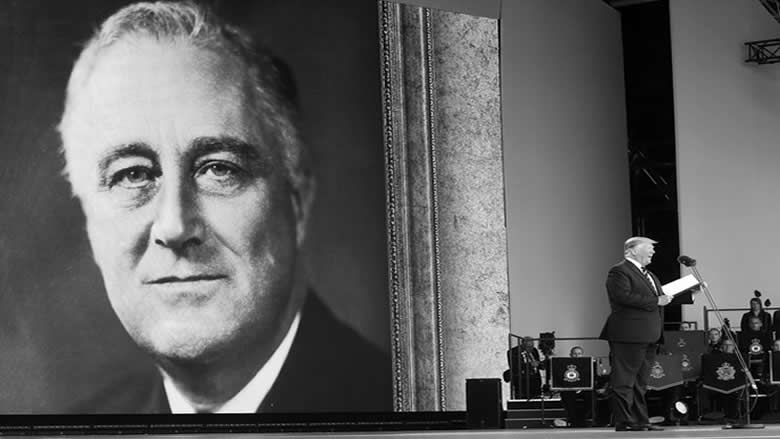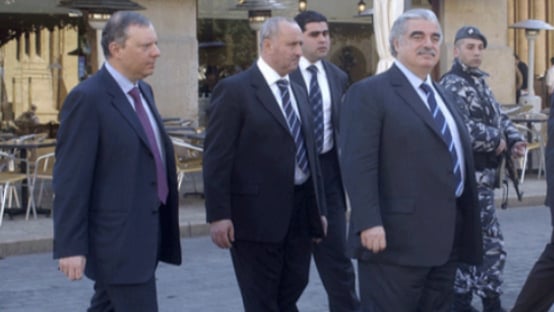The armies of America continue to pour into Europe, June after June—armies of tourists, that is. Europe is the most visited region in the world, and the American presence there remains overwhelming, at least in numbers, which continue to go up. Many Old World places—Venice, most painfully—have been largely despoiled by this mass tourism, no longer American alone but for so long American-led. The paradox is that a good impulse—the desire to see a famous place—can lead to a bad result: a famous place becomes largely emptied of everyone except the people who come to see it. The collision of an obscenely overlarge cruise ship with a tourist boat at a Venetian pier this week was a wildly vivid symbol of this overstuffed and perhaps unsustainable order.
It’s not just Americans who are arriving—Germans lead the march into Italy, as they have done since Goethe’s time—but Americans stand out because we have so much farther to go to get there. Language is an unstoppable flood, too, and, just as the Gospels were written in Greek because Hellenistic literature was the dominant force in the ancient world, so American English has become, to a degree that was not true even forty years ago, the Continent’s lingua franca, to use that term ironically. All this is, in a sense, the inevitable consequence of the great armed Allied invasion that occurred seventy-five years ago this week. D Day began the liberation of Europe from Nazi control. It also, as a result, opened up Europe for the first time to Americans beyond the ranks of Jamesian travellers and Hemingwayesque expatriates. Americans, for the most part, were kept down on the farm after seeing Paris during the First World War. But the end of the Second World War led Americans to Europe on a scale never before seen.
This was fitting, in a way: military invasions open a path for invasions of other kinds. Greek civilization went east in the wake of Alexander the Great’s conquests, and the American kind did in the wake of the Allied liberation of the Continent. Now, though, looking around Europe, one might almost propose to alter Harold Macmillan’s famous wartime statement that England would play Athens to America’s Rome, meaning that the Old Country would spread liberal culture and learning to support the younger country’s liberal arms. Now it is more as if America itself plays Athens to America’s Rome: our soft power and cultural reach remain in place—the music the street musicians play outside the Pantheon, in Rome, are the themes from “Twilight” and “Titanic”—even if so much of our harder power seems in relative decline.
Judging from headlines and conversations, that’s how Europeans see it. The grotesque spectacle of Donald Trump in London this week seems, far from disquieting the Europeans, to have left them largely indifferent; they’ve mostly accepted the absence of an American model. Besides, every country on the Continent is suffering its own crisis in which some form of irrational nationalism, at war with the liberal cosmopolitan experiment, has taken hold. The experiment is failing. Even in solidly republican France, President Emmanuel Macron is battling the far-right movement of Marine Le Pen—a less vulgar Le Pen than her father, but still a Le Pen. In Britain, the madness of Brexit continues long after its folly has been made plain, while in Italy and Greece bizarre populist coalitions continue in place—though the recent elections for the European Parliament, however narrowly symbolic they are in terms of the actual power they carry within each nation, augur a return of saner politicians to power.
Nevertheless, Trump’s assault not on the mere norms but on the very principles and practices of liberal democracy remains frightening, the only thing more alarming being the ease with which his actions have been normalized and treated as eccentricities rather than the affronts to liberal democratic values that, for all their seeming triviality, they are. Principles are built out of many bricks; even the loss of one weakens the whole. The reason no leader of a democratic country in modern times has previously engaged in raging at, say, a “washed up psycho” during a state visit is not because they all followed country-club norms of good behavior but because they understood that power carries with it. That is why in Portsmouth, on Wednesday, when participating in the ritual salutes to D Day, attended by a small remnant of the event’s survivors, Trump seemed reduced to a parody of a democratic leader, as he stiffly read from Franklin Delano Roosevelt’s D Day prayer. The gaffes, or stolen bricks, included insults to various British leaders (and a royal), false statements about trade, Brexit, and Ireland, and then all that time spent insulting Bette Midler, who had misattributed a quote to him. The buffoonery even extended to the ill-fitting white-tie suit he donned for the state banquet, which made him look like a waiter in a silent comedy. Should one criticize a man for badly fitting clothes? Perhaps not, but to be that indifferent to how we look is to be unaware of how others see us.
Those of us who retain an inalterable appetite for books about the seventy-five-year-old date, and the military history relating to it—there’s a fine recent one by Antony Beevor, to supplement his earlier work, as well as histories by John Keegan and Cornelius Ryan, whose “The Longest Day” has been republished by the Library of America—read those accounts with a note of nostalgia as much as enlightenment. We may still be absorbed in the details of the battle: Was the American near-disaster on Omaha Beach a consequence of bad luck, and its ultimate outcome one of sheer bravery? Or was the easier landing of the Canadian and British forces on other beaches due to their readiness to rely on Hobart’s Funnies, the specially designed floatable tanks whose development Churchill had encouraged and the Americans had disdained? Could the subsequent battle in Normandy have been more efficiently fought? How much did the rivalry among the Allied leaders—Field Marshal Montgomery, Generals Omar Bradley and George Patton, and the rest—warp the progress of the battle? And was General de Gaulle’s insistence on claiming a French share of the fight, despite the absence of French troops, a mad act of vanity or a sage realization of the necessity of keeping a battle fought in France at least symbolically French?
Yet all of these questions seem, increasingly, merely nostalgic, nugatory, in the face of the dissolution of the common solidarity of principles that once made the liberation happen. Trump’s contempt for the principles that led to the war on Hitler is manifest every day, and the speech that he read in Normandy, on Thursday morning, despite the seemingly conciliatory rhetoric it employed, was thus an exercise in transparent insincerity. The alacrity of those who, desperate for a sign of decency, maintain that these words were significant, is in itself depressing.
The invasion, as historians recall, worked because, at that moment, there was a genuine impulse, however scarred by national rivalries, to intervene on behalf of humanity against bestiality. Eisenhower talked of a crusade in Europe, and, though the end results, with Stalin’s armies entrenched in Eastern Europe and America soon enlisting the help of Nazi scientists to keep the U.S. in military parity with him, were more painful and ambivalent than one might have wanted, still, the crusade took place. The important distinctions that reigned then reign now. “America First” was a slogan then, as now, but in 1940, the crucial year of choosing, as well as in 1944, the crucial choosing year of fighting, isolationism in the face of authoritarianism lost out.
Why does the Atlantic alliance now seem on the brink of coming apart? The pains of Europe now are not strictly economic—as many have argued recently, the actual economic picture in the member countries of the Organization for Economic Coöperation and Development is generally robust. But the puzzle shouldn’t really be a puzzle. The struggle between open and closed visions of society is not a narrow historical one but a permanent and—there’s no other word for it—spiritual one, with the desire to retreat into a shell in constant battle (no other word for that, either) with the understanding that others have their stories, and that only a common effort bridging nations can help humanity survive tyranny.
Once everything else is boiled off—American national ambitions, Canadian ambivalence about its colonial role, British desires to maintain empire, the French need for self-absolution through symbolism—the basic, deep underlying urge of seventy-five years ago was sound: to remake a continent that has catastrophically lost its way in the image of something better, even at the cost of immense sacrifice. Behind the common action that fateful morning were common principles. We can still name some: a subordination of military to civilian rule, with an efficient, not a fetishized, military the ideal; a belief in educated, democratic armies, and with that a sense that actions have to be articulated and never seem arbitrary. (Eisenhower’s order of the day to the “sailors, soldiers, and airmen” going into battle is still worth reading for its clarity of aim: “The elimination of Nazi tyranny over the oppressed peoples of Europe.”) Also, a readiness of those in power to take responsibility for their actions. (Eisenhower’s other statement, written in case of the invasion’s failure, is worth reading, too: “If any blame or fault attaches to the attempt it is mine alone.”) Common action rooted in a common hatred of arbitrary power worked then. Could it still?





